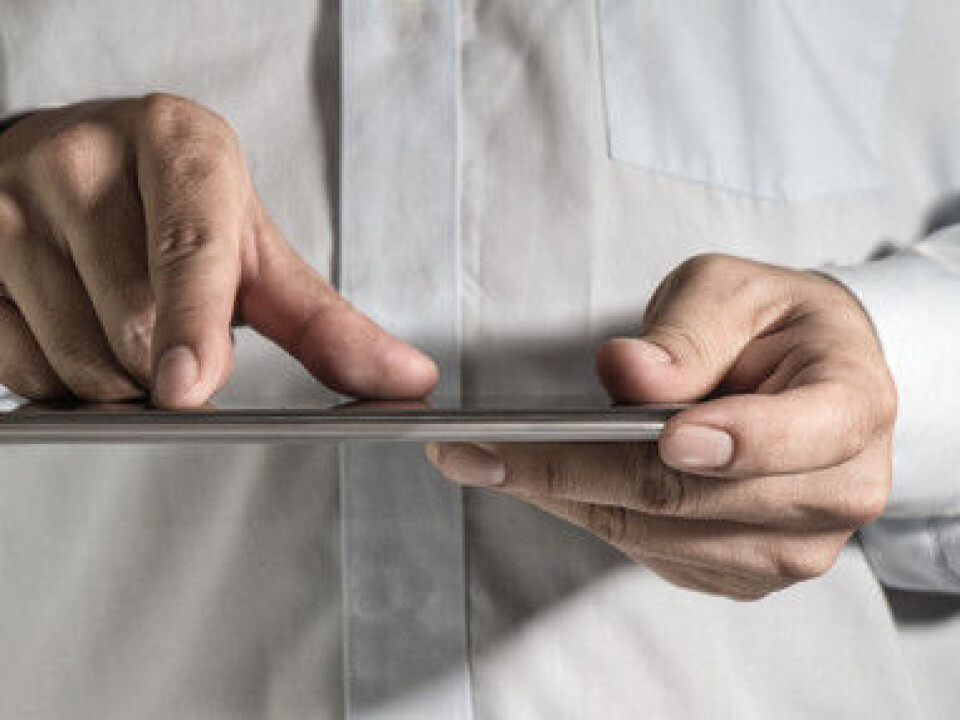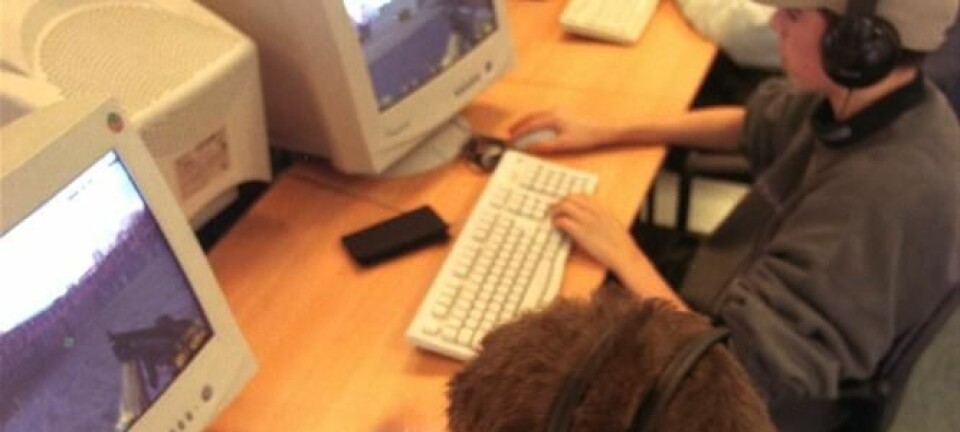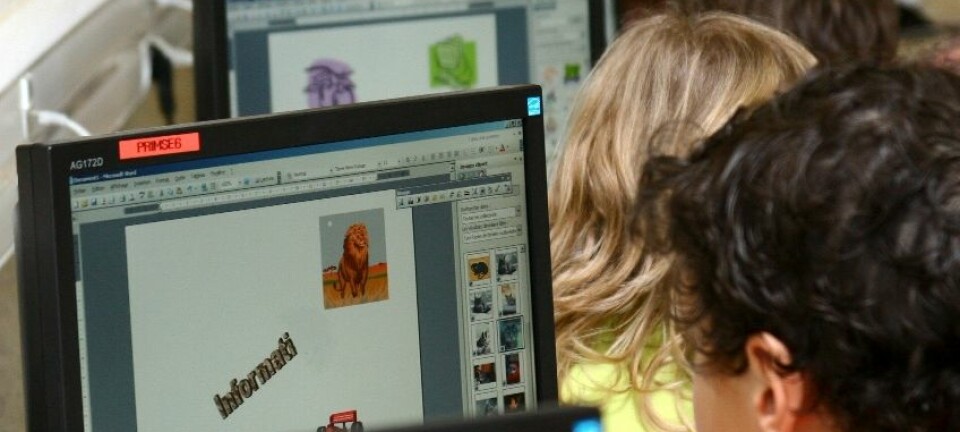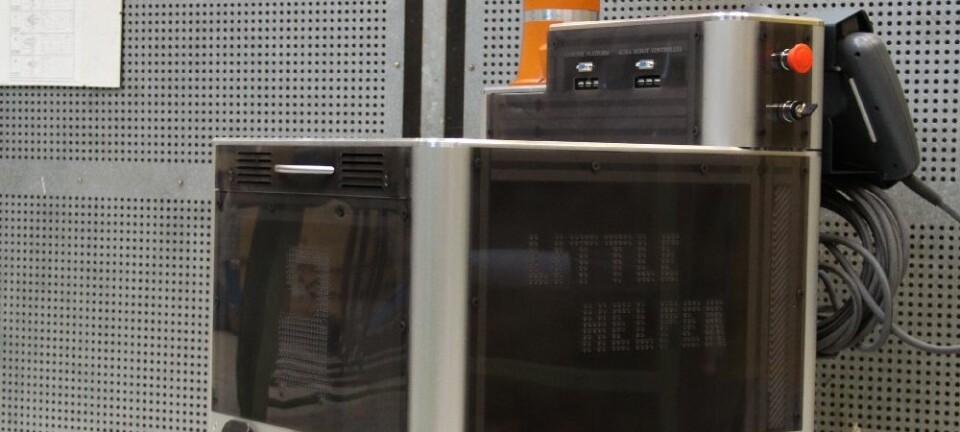
Paper beats computer screens
People comprehend what they're reading on a sheet of paper far better than when they read those same words on a computer screen.
Denne artikkelen er over ti år gammel og kan inneholde utdatert informasjon.
Neo-Luddites rejoice: numerous studies show that when you read a text on paper your understanding is deeper and longer lasting than if you read that same text on a computer.
Of course, if you read the text on a screen you can probably recount what you read. But you cannot as readily make use of the content in other contexts. You haven’t comprehended it as deeply and assimilated it as substantially.
Digital information isn’t just a fleeting phenomenon on your computer screen. It disappears more quickly from your memory, too. Screens are best for superficial and speedy reading.
Norwegian study
A new Norwegian study of 10th graders confirms that reading texts in print versus on a computer screen is better for some aspects of comprehension. It was carried out by Anne Mangen and her colleagues at the Reading Centre of the University of Stavanger.

They randomly divided 72 of their 10th grade teens into two groups. Both were given two texts, a fiction piece and a factual piece.
One group was asked to read the two texts as PDF files on standard computer screens, the other read the texts on paper. The pupils’ individual reading skills and vocabularies had been charted beforehand, to make allowances for these variations.
The teens were then asked to answer questions that would show how well they had comprehended the text.
The results clearly demonstrated that those who had read on computer screens had understood less than those who read on paper. Perhaps surprisingly, this disparity was encountered with both the fiction and the factual prose.
Mental map

Why would this be? Mangen and her co-authors discuss various possible causes in an article in the International Journal of Educational Research as well as in an article in the Norwegian journal Norsk pedagogisk tidsskrift.
An obvious difference between PC screens and paper is that paper is material. You can feel the weight, texture and thickness of a pamphlet or a book. You can see where it begins and ends. You can quickly leaf through the pages with your fingers.
This perceptible, direct experience gives you a mental map of the entire text. The brain has an easier task when you can touch as well as see.
Previous research has demonstrated that a mental map is particularly important if the text is long. Lengthy texts call for quicker navigation. You need to be able to leaf back and forth through different parts of the text to see, review and comprehend relationships and contexts.
Smooth glass

That physical experience is nearly absent when reading on a screen. You can only see a page or two at a time.
You experience the length of a text on a screen by using the scrollbar, the page number or other abstract and indirect markers.
Although tablets like iPads let you turn pages with a flick of the finger, your finger only brushes against smooth glass. The text and surface no longer comprise a tangible unit.
Paper speaks to your emotions
Comprehension is not the only thing that suffers. Paper also seems to communicate more to our emotions than a screen does, according to tests that Anne Mangen conducted recently with David Miall and Don Kuiken, who are professors of literature and psychology respectively at the University of Alberta in Canada.
They compared reading of a short narrative text on an iPad with reading it on paper. The test subjects who read on paper became more deeply involved with the story than those who read it on the tablet. These results are so fresh they haven’t been published yet.
Mangen is an adherent of interdisciplinary cooperation in research. She is currently working in France with the neurophysiologist Jean-Luc Velay.
Velay is known for research that shows that writing by hand activates other parts of the brain than typing on a keyboard.
Body and mind belong together
The findings open doors to essential insights with a rather classical bent: Mind and body are interlinked. This age-old understanding is getting increasing attention among neurologists, psychologists and philosophers.
Studies show that our brains don’t work like computers. We don’t sense things, then process the sensory perceptions afterwards.
On the contrary, there is a much greater and closer connection between what we sense and do with our bodies and what we understand.
Mangen thinks this is why it is important to study how interface technologies invite us to use our bodies, particularly our hands and fingers.
Mangen and Velay are currently involved in studies that literally touch on this phenomenon. The volunteers in their investigation read mystery novels, either on a Kindle tablet or in ordinary books.
The researchers want to find out how touching a book and a tablet affects the experience.
Hang on to paper
Do Mangen and her colleagues' results suggest that it’s a mistake for our schools to trade textbooks for reading tablets and PCs?
Mangen says that a wholesale shift to digital forms of information presentation ignores conclusions from her research as well as most of what she has learned from other psychological studies in this field.
She thinks educators shouldn’t decide to get rid of paper based on a blind faith in digital technology.
----------------------
Read the Norwegian version of this article at forskning.no
Translated by: Glenn Ostling
Scientific links
- Anne Mangen et.al: Reading linear texts on paper versus computer screen: Effects on reading comprehension, International Journal of Educational Research, Volume 58, 2013, Pages 61–68
- Mangen, A., & Velay, J.-L. (2010). Digitizing literacy: reflections on the haptics of writing. Invited book chapter in Zadeh, M.H. (Ed.), Advances in Haptics. Vienna: IN-TECH web. ISBN: 978-953-307-093-3 (pp. 385-402)


































